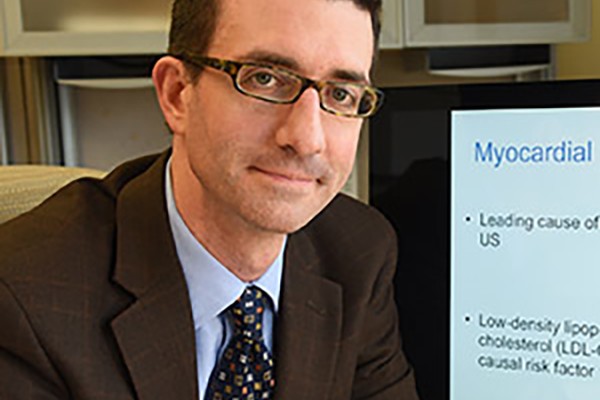Study shows who benefits most from statins
New research suggests that widely used statin therapy provides the most benefit to patients with the highest genetic risk of heart attack. Using a relatively straightforward genetic analysis, the researchers, including Nathan O. Stitziel, MD, PhD, assessed heart attack risk independently of the traditional risk factors.
Errors in single gene may protect against heart disease
Rare mutations that shut down a single gene are linked to lower cholesterol levels and a 50 percent reduction in the risk of heart attack, according to new research led by Nathan Stitziel, MD, PhD, of the School of Medicine. The gene, called NPC1L1, is of interest because it is the target of the drug ezetimibe, often prescribed to lower cholesterol.
Study: Can vitamin D slow heart complications from diabetes?
Washington University researchers are studying African Americans with diabetes to learn whether vitamin D can slow the development of cardiovascular problems. Shown is principal investigator Carlos Bernal-Mizrachi, MD, with study patient Helen Randall.
Committee recommends changes in cardiovascular disability benefits
A Washington University scientist has been working with the federal government to determine what makes heart disease disabling. To determine cardiac disability, the committee recommended more functional testing and also discussed the need to evaluate not only a patient’s heart but the patient’s mood as well because depression can make heart disease worse.
Treatment for depression in heart attack patients fails to improve survival
A team of researchers from Washington University School of Medicine in St. Louis, the Mayo Clinic in Rochester, Minn., the Harvard School of Public Health and several other clinical centers around the United States has found that treating depression and social isolation in recent heart attack patients does not reduce the risk of death or second heart attack. Results from the Enhancing Recovery in Coronary Heart Disease Patients Study (ENRICHD) are published in the June 18 issue of the Journal of the American Medical Association.

